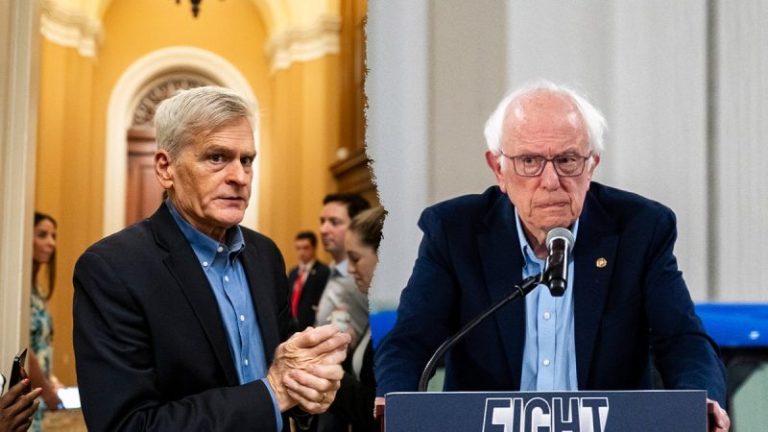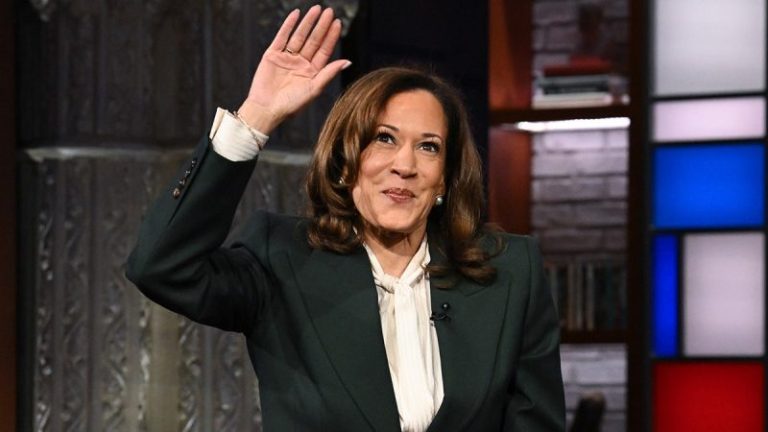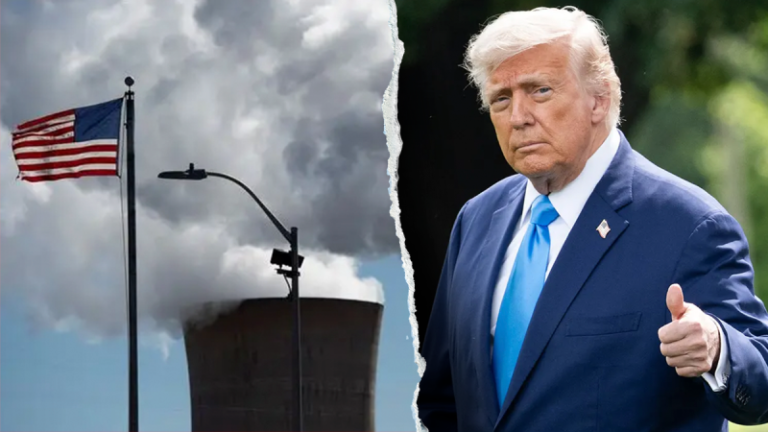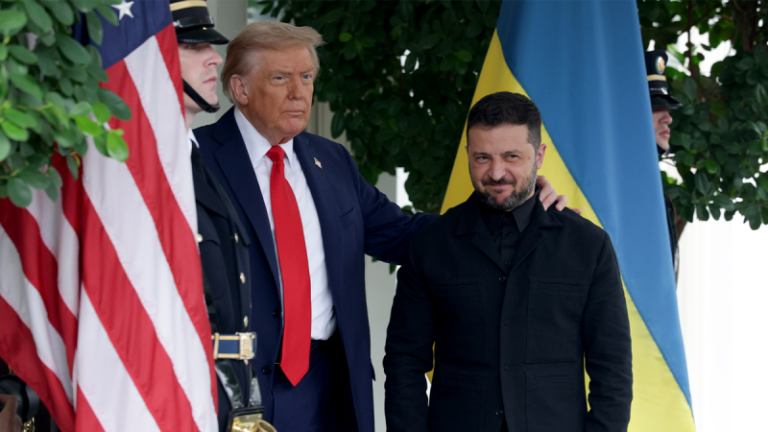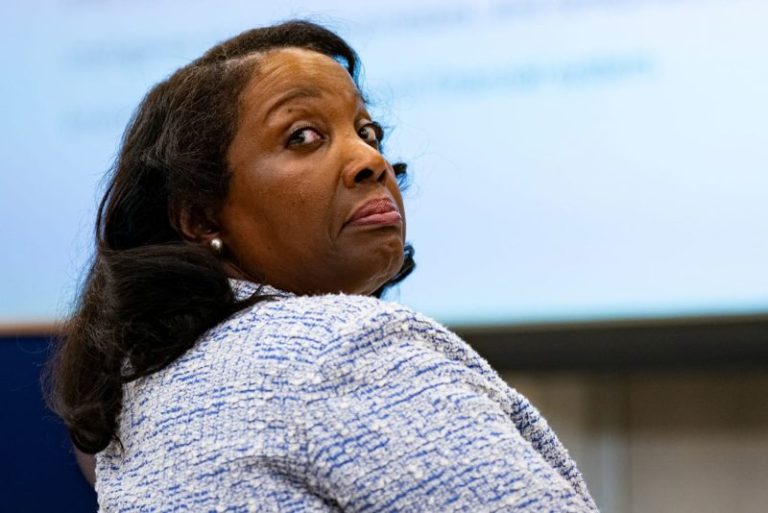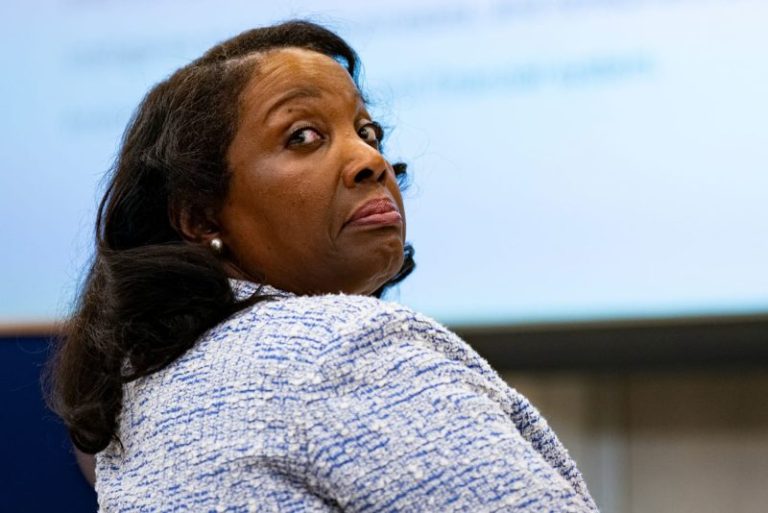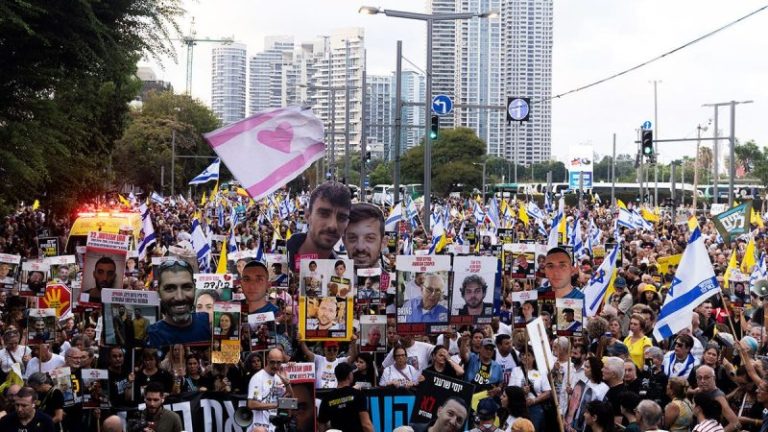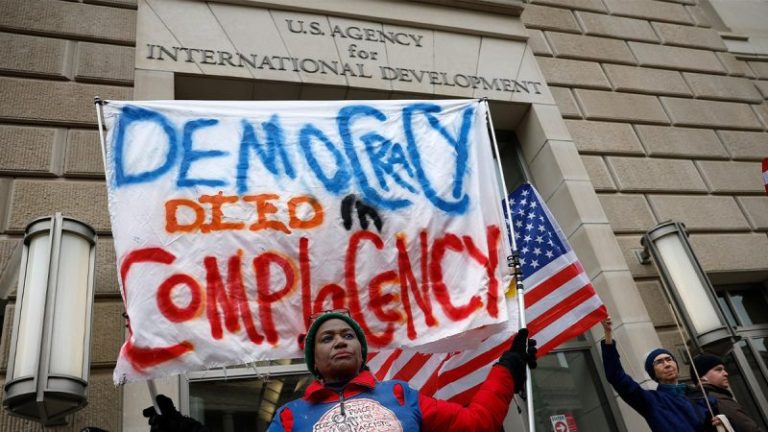An American energy leader is warning that several progressive ‘green’ environmental groups opposing President Donald Trump’s nuclear energy plans are linked to a ‘web of dark money’ groups with ties to former President Barack Obama and other Democrats.
Jason Isaac, CEO of the American Energy Institute, warned during an interview with Fox News Digital that while claiming to stand for the planet, these groups ‘have prioritized ideology over innovation’ and are ‘driven by green activists and groups deeply tied to the Democratic Party.’
‘You follow the money, you’ll see where it leads. It leads straight to partisan mega-donors, foreign interests, and failed climate crusaders,’ Isaac said. ‘This isn’t about the environment. It’s about political control over America’s energy future and our energy dominance.’
Isaac’s comments follow Trump’s signing of several executive orders in May to ‘usher in a nuclear renaissance’ by cutting red tape to accelerate advancements in nuclear technologies. In one of the orders, Trump said that ‘abundant energy is a vital national- and economic-security interest’ and ‘in conjunction with domestic fossil fuel production, nuclear energy can liberate America from dependence on geopolitical rivals.’
However, several environmentalist groups, such as the Union of Concerned Scientists, Nuclear Threat Initiative, Greenpeace, Friends of the Earth, the Sierra Club and several individuals have been critical of Trump’s actions as unscientific.
In late July, the Union of Concerned Scientists published a statement lambasting Trump, saying that ‘since the Inauguration, the administration has systematically destroyed federal scientific systems.’
UCS published a report that claimed the Trump administration is advancing a ‘systematic effort to suppress climate science and dismantle actions to address the climate crisis that will increase costs and suffering, particularly for disadvantaged communities, while boosting fossil fuel pollution and profits.’
A Fox News Digital review of UCS donors found that the group has received financial support from left-wing donors like the Tides Foundation, whose 2023 U.S. tax return shows it has helped bankroll anti-Israel protests on college campuses, and the Alliance for Global Justice, which in turn is a fiscal sponsor of the Samidoun Palestinian Prisoner Solidarity Network, a group the U.S. Department of the Treasury later designated as ‘a sham charity that serves as an international fundraiser for the Popular Front for the Liberation of Palestine (PFLP) terrorist organization.’
UCS has also received support from the U.S. Energy Foundation, which Fox News Digital previously reported was spun off from the same foundation as the Energy Foundation China.
Meanwhile, Nuclear Threat Initiative, another group that has been publicly wary of Trump’s nuclear agenda, was co-founded by Ted Turner, who once urged other countries to adopt China’s one-child policy, and led by CEO Ernest Moniz, who was secretary of energy under Obama.
Other Nuclear Threat Initiative leaders have links to Democratic causes through political contributions, such as the group’s president, Joan Rohlfing, who donated to former President Joe Biden and former Vice President Kamala Harris, its vice president, Scott Roecker, who has donated to the Democratic National Committee, and its senior director, Nickolas Roth, who donated to Biden.
A spokesperson for NTI told Fox News Digital that the organization ‘actively supports the rapid expansion of safe, secure, and cost-effective nuclear energy through the Nuclear Scaling Initiative (NSI), in partnership with the Clean Air Task Force and the EFI Foundation.’
‘NSI’s goal is to enable the scaling of more than 50 gigawatts of nuclear capacity annually across the globe by the 2030s—advancing climate goals, energy security, nonproliferation, and economic development.’
The spokesperson added that NTI is a ‘nonprofit, nonpartisan global security organization’ while pointing to a New York Post letter to the editor from Roecker pushing back on allegations of bias.
Another group, Friends of the Earth, which has actively urged the world to ‘reject’ Trump, has a history of far-left endorsements and contributions. In 2020, Friends of the Earth endorsed Black Lives Matter and called for defunding the police. The group has also endorsed the Green New Deal and said the U.S. must ‘provide finance for people in developing countries commensurate with what science and justice demand.’
During the 2020 election, Friends of the Earth Action endorsed Sen. Bernie Sanders, I-Vt., and Sen. Elizabeth Warren, D-Mass., for the Democratic presidential nomination. In 2024, the group endorsed Harris for president.
Since 2015, Friends of the Earth Action PAC has donated thousands to Democratic or progressive candidates and causes, according to data gathered by OpenSecrets.
For its part, the Sierra Club, which routinely pushes back against Trump on its social media account, has had an even more extensive history of advancing progressive causes.
In 2020, the Sierra Club supported defunding the police, saying, ‘The problems with policing can’t be solved through piecemeal reforms or getting rid of ‘a few bad apples.’’
The group also endorsed the Green New Deal, calling it a ‘big, bold transformation of the economy to tackle the twin crises of inequality and climate change.’
It has also said it is ‘committed to being an anti-racist organization.’ In 2020, the group even condemned its founder, naturalist John Muir, for using racist language in the 1800s, saying it was ‘time to take down some of our own monuments.’
The Sierra Club Foundation has, in turn, received significant support from George Soros’ Open Society Foundations, left-wing Swiss megadonor Hansjorg Wyss’s Wyss Foundation, and The Climate Imperative Foundation, which infamously pushed the Biden administration’s move to ban gas stoves.
Greenpeace, which is well known for its dramatic climate protests, including boarding an oil vessel, has been a vocal critic of Trump for years, accusing the president of ‘defying science.’
Greenpeace has received support from New Venture Fund, whose website states that its day-to-day operations are managed in part by Arabella Advisors, the behemoth philanthropy services firm that also manages left-wing ‘dark money’ funds. According to a 2017 tax filing, Greenpeace has also received funding from the Silicon Valley Community Foundation, which in turn receives funding from Mark Zuckerberg, Reed Hastings, and Jack Dorsey.
In 2020, Greenpeace touted that a staff member was involved in creating a ‘Vision for Black Lives’ platform and fully endorsed the program that called for reparations and a ‘guaranteed minimum livable income for all Black people.’ The program also supported cutting funding from law enforcement and decriminalizing ‘all drug-related offenses and prostitution.’
The group has provided funding to progressive state committees like the Colorado League of Responsible Voters, Colorado Rising for Health & Safety, and Democratic candidates and causes.
Speaking with Fox News Digital, Isaac described the groups opposing Trump’s nuclear push as a ‘whole web of dark money-funded partisan and foreign-tied organizations.’
I don’t think they want to solve the problem,’ he said, adding, ‘these groups are about control, they’re about driving the cost of energy up and driving access to energy down so they can control the narrative and control every aspect of our lives.’
Will Hild, executive director of Consumers’ Research, told Fox News Digital, ‘the reality is the green agenda is a hodgepodge of anti-human activists who have adopted the green agenda as their religion, coupled with megalomaniacs and political operatives exploiting climate issues to push a broader ideological agenda.’
‘What we have seen for years is so-called ‘green’ groups pushing an anti-nuclear agenda that defies science, common sense, and the interests of the American people,’ he said.
NTI has been publicly wary of Trump’s nuclear expansion, while UCS, Friends of the Earth, the Sierra Club and Greenpeace have been heavily critical of the administration’s actions on environmental issues more generally.
‘Nuclear energy is statistically the safest, cleanest, and most reliable source of power we have, yet the left is doing everything they can to shut it down,’ Hild went on. He criticized these ‘activist groups’ for ‘the damage they’re doing to our economy, our security, and our future in pursuit of an extreme climate ideology.’
Steve Milloy, who is a senior policy fellow at the Energy and Environment Institute and served on Trump’s 2016 transition team for the Environmental Protection Agency, also chimed in, calling the current moment ‘a critical turning point for the future of energy.’
‘For decades, radical environmental groups have tried to block nuclear energy, despite its unmatched record for safety and reliability,’ he said. ‘By championing nuclear power, the President is putting science, technology, and common sense ahead of the outdated, anti-energy green agenda pushed by the Left.’
Fox News Digital also reached out to the Sierra Club, Greenpeace, Friends of the Earth, and UCS for comment but did not receive a response.
This post appeared first on FOX NEWS

